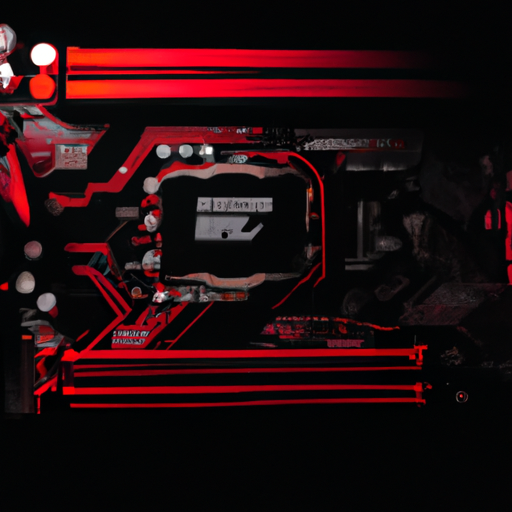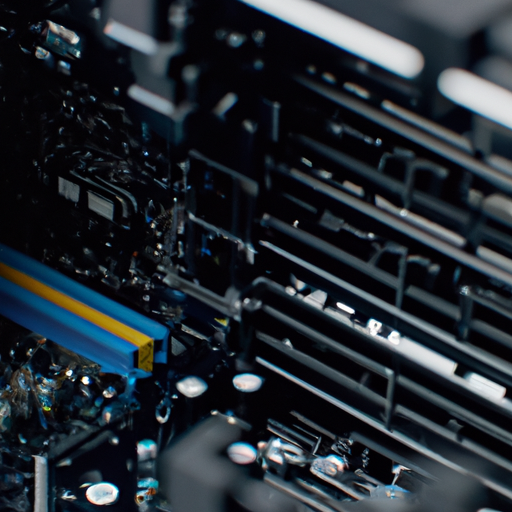How to Improve Your CPU Performance with Simple Software Tweaks
Are you looking for ways to improve your computer’s performance? If so, you’ve come to the right place! With a few simple software tweaks, you can get your CPU running faster and more efficiently. Here are some tips to help you get started.
1. Update Your Operating System. Keeping your operating system up to date is one of the most important steps you can take to improve your CPU performance. Operating system updates often include bug fixes and performance improvements, so make sure you’re running the latest version.
2. Uninstall Unused Programs. If you’ve got a lot of programs installed on your computer that you don’t use, it’s time to get rid of them. Unused programs can take up valuable space on your hard drive and slow down your computer’s performance.
3. Disable Unnecessary Startup Programs. Many programs are set to launch automatically when you start your computer. This can slow down your startup time and reduce your CPU performance. To disable unnecessary startup programs, open the Task Manager and look for the “Startup” tab.
4. Clean Up Your Hard Drive. Over time, your hard drive can become cluttered with temporary files, old downloads, and other junk. To free up space and improve your CPU performance, use a disk cleanup tool to delete unnecessary files.
5. Adjust Your Power Settings. If you’re using a laptop, you can adjust your power settings to improve your CPU performance. Go to the Control Panel and select “Power Options” to access the settings.
By following these simple steps, you can get your CPU running faster and more efficiently. With a few software tweaks, you can make your computer run like new again!
What You Need to Know About Overclocking Your CPU for Maximum Performance
Overclocking your CPU can be a great way to get more performance out of your computer. It can help you get the most out of your hardware and can be a great way to squeeze out a few extra frames per second in your favorite games. However, it’s important to understand the risks and rewards of overclocking before you dive in.
First, it’s important to understand what overclocking is. Overclocking is the process of running your CPU at a higher frequency than it was designed to run at. This can be done by increasing the voltage and/or the clock speed of the processor. This can result in improved performance, but it also increases the risk of damaging your hardware.
When overclocking, it’s important to start small and work your way up. Start by increasing the clock speed by a small amount and then testing the system to make sure it’s stable. If it’s stable, you can increase the clock speed a bit more and test again. This process should be repeated until you reach the desired performance level or until the system becomes unstable.
It’s also important to keep an eye on the temperature of your CPU. Overclocking can cause the temperature of your CPU to increase, so it’s important to make sure it doesn’t get too hot. You can use a program like Core Temp to monitor the temperature of your CPU and make sure it stays within a safe range.
Finally, it’s important to remember that overclocking can void your warranty. If you’re not comfortable with the risks associated with overclocking, it’s best to leave it to the professionals.
Overclocking your CPU can be a great way to get more performance out of your computer, but it’s important to understand the risks and rewards before you dive in. Start small and work your way up, keep an eye on the temperature of your CPU, and remember that overclocking can void your warranty. With these tips in mind, you can get the most out of your hardware and enjoy improved performance.
How to Optimize Your System for Maximum CPU Performance

If you want to get the most out of your CPU, there are a few simple steps you can take to optimize your system for maximum performance. Here are some tips to help you get the most out of your CPU:
1. Update Your Operating System: Keeping your operating system up to date is essential for getting the most out of your CPU. Make sure you are running the latest version of your operating system and any available updates.
2. Close Unnecessary Programs: If you have multiple programs running at once, it can slow down your CPU. Close any programs you are not using to free up resources for the programs you are using.
3. Disable Unnecessary Services: Many programs run services in the background that can slow down your CPU. Disable any services you don’t need to free up resources for the programs you are using.
4. Clean Up Your Hard Drive: A cluttered hard drive can slow down your CPU. Make sure to delete any unnecessary files and programs to free up space and resources.
5. Upgrade Your RAM: If your RAM is outdated or insufficient, it can slow down your CPU. Consider upgrading your RAM to get the most out of your CPU.
By following these simple steps, you can optimize your system for maximum CPU performance. With a few simple tweaks, you can get the most out of your CPU and enjoy faster, smoother performance.
The Benefits of Upgrading Your CPU for Improved Performance
Are you looking for ways to improve the performance of your computer? Upgrading your CPU (Central Processing Unit) is one of the most effective ways to do this. Here are some of the benefits of upgrading your CPU:
1. Faster Processing Speed: Upgrading your CPU will give you a faster processing speed, allowing you to run more programs and applications at once. This will make multitasking easier and more efficient.
2. Improved Graphics: A new CPU will also improve the graphics of your computer. This means that you can enjoy more detailed and realistic visuals when playing games or watching movies.
3. Increased Memory: Upgrading your CPU will also increase the amount of memory available on your computer. This will allow you to store more data and run more programs at once.
4. Better Battery Life: A new CPU will also improve the battery life of your computer. This means that you can use your computer for longer periods of time without having to worry about running out of power.
5. Improved Security: Upgrading your CPU will also improve the security of your computer. This will help protect your data from malicious software and hackers.
Upgrading your CPU is a great way to improve the performance of your computer. It will give you faster processing speeds, better graphics, increased memory, better battery life, and improved security. So, if you’re looking for ways to get the most out of your computer, upgrading your CPU is a great place to start.
Tips for Diagnosing and Troubleshooting CPU Performance Issues
1. Check the CPU usage: The first step in diagnosing and troubleshooting CPU performance issues is to check the CPU usage. This can be done by using the Windows Task Manager or a third-party monitoring tool.
2. Check for malware: Malware can cause CPU performance issues, so it’s important to check for any malicious software that may be running on your system.
3. Check for overheating: Overheating can cause CPU performance issues, so it’s important to check the temperature of your CPU and other components.
4. Check for driver issues: Outdated or corrupt drivers can cause CPU performance issues, so it’s important to check for any driver issues.
5. Check for hardware issues: Hardware issues can cause CPU performance issues, so it’s important to check for any hardware issues.
6. Check for software issues: Software issues can cause CPU performance issues, so it’s important to check for any software issues.
7. Check for memory issues: Memory issues can cause CPU performance issues, so it’s important to check for any memory issues.
8. Check for power supply issues: Power supply issues can cause CPU performance issues, so it’s important to check for any power supply issues.
9. Check for BIOS settings: BIOS settings can cause CPU performance issues, so it’s important to check for any BIOS settings that may be causing the issue.
10. Check for other system issues: Other system issues can cause CPU performance issues, so it’s important to check for any other system issues that may be causing the issue.
